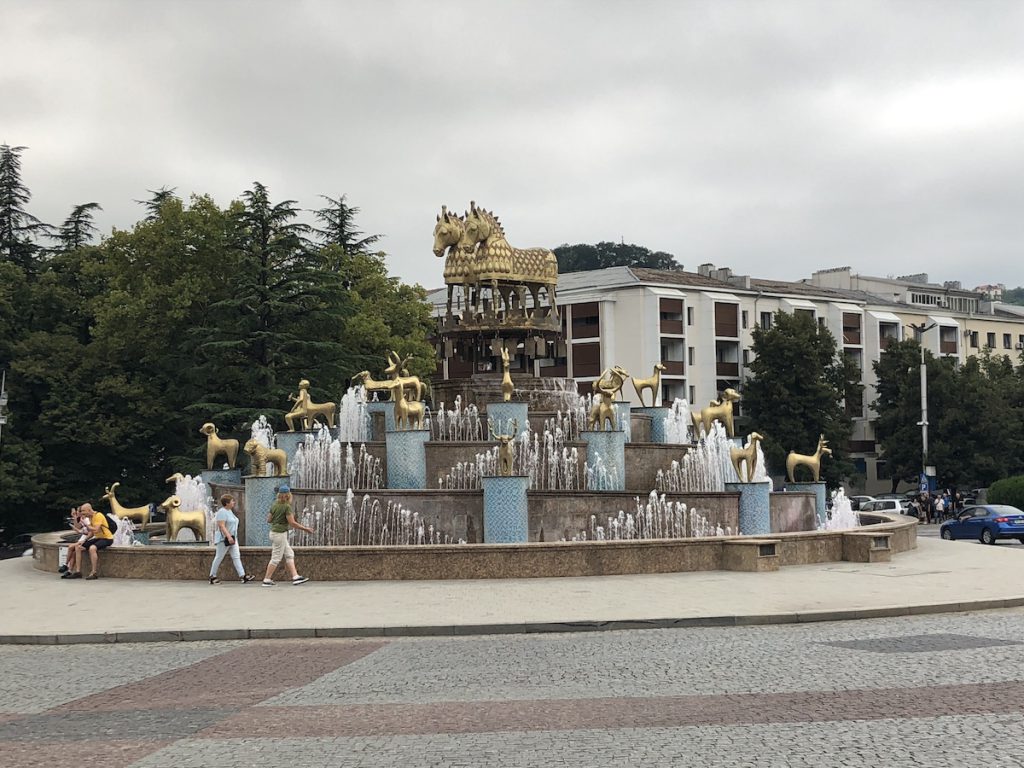
The train ride passed quickly with comfortable first class seats and a back issue of the London Review of Books.
It was the same Zugdidi-bound service we’d used a few days before, but we would not be returning to the highlands. We were bound for Berlin the next day, and there isn’t much more to say.
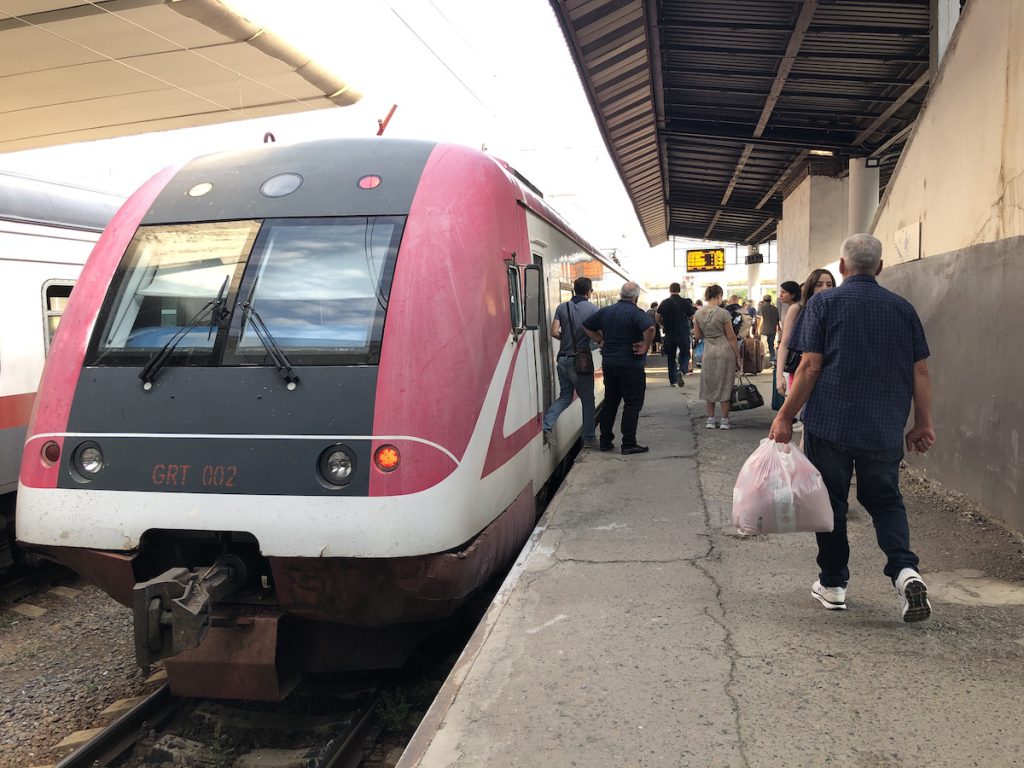
I liked Kutaisi immediately, with it’s shady tree-lined streets and old buildings.
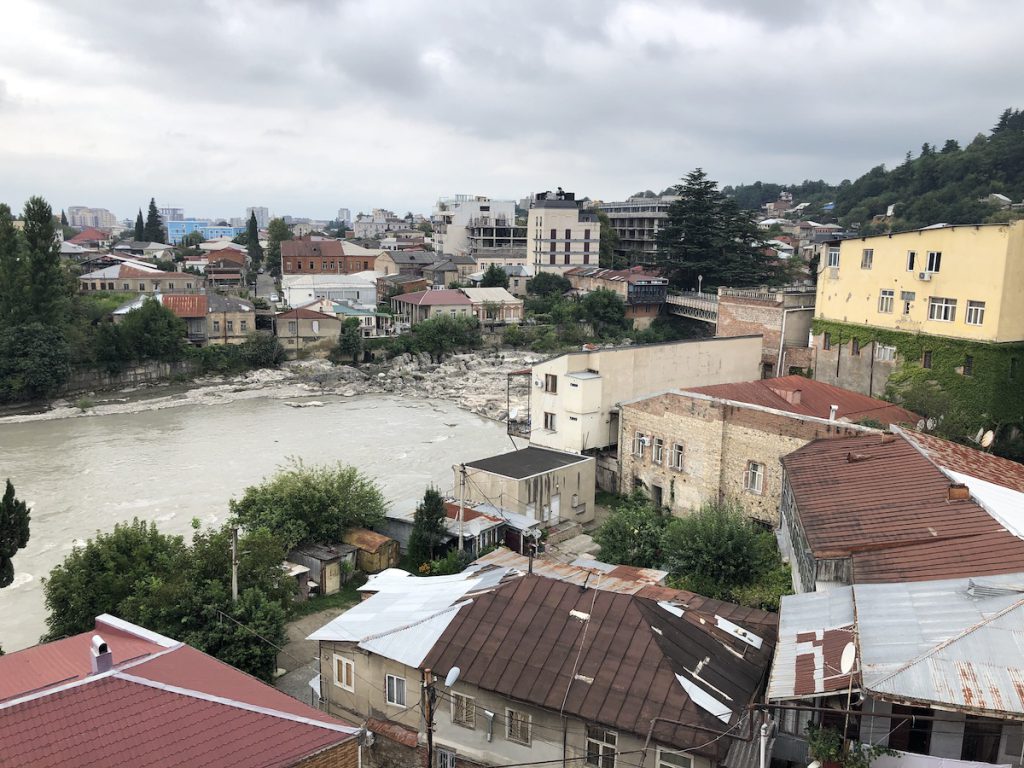
We checked into our room in an apartment hotel overlooking the Rioni River and walked to a stand-up place favoured by workers in search of good food and gruff service — exactly the sort of place I like.
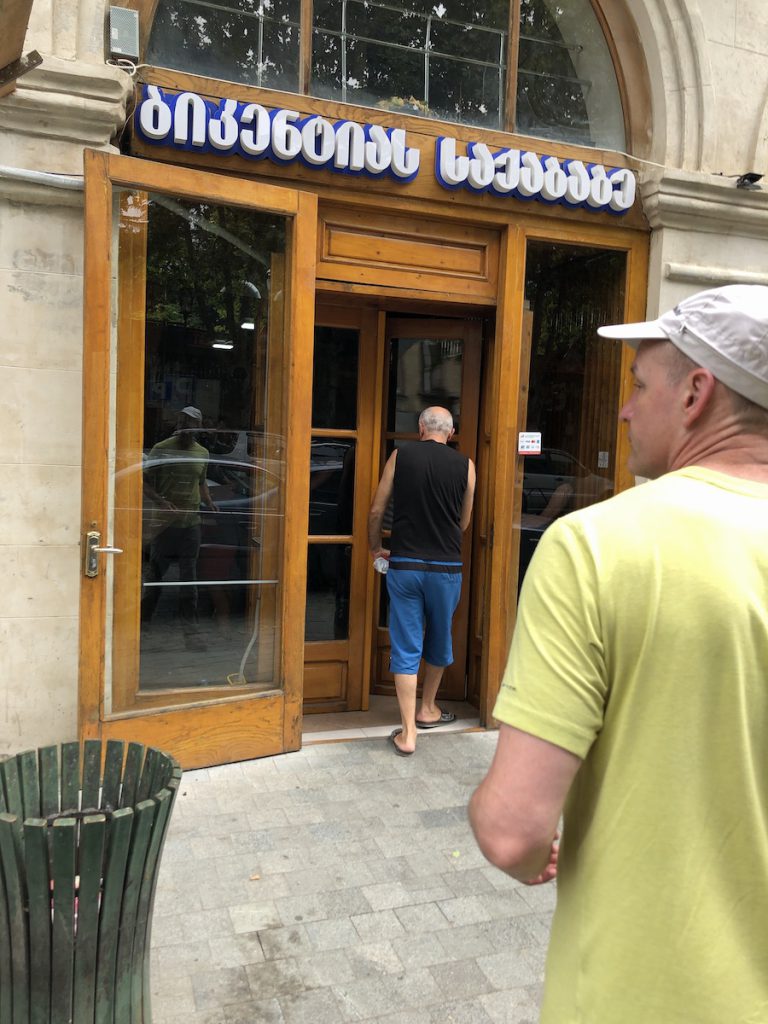
Bikentia’s only serves kebab in onion and tomato sauce, with a slab of bread and your choice of draft beer or pear-flavoured soft drink. Georgian kebab is similar to what you’d find in the Balkans, rather than the döner kebab of Berlin: ground meat mixed with herbs and spices, pressed onto a skewer and grilled.
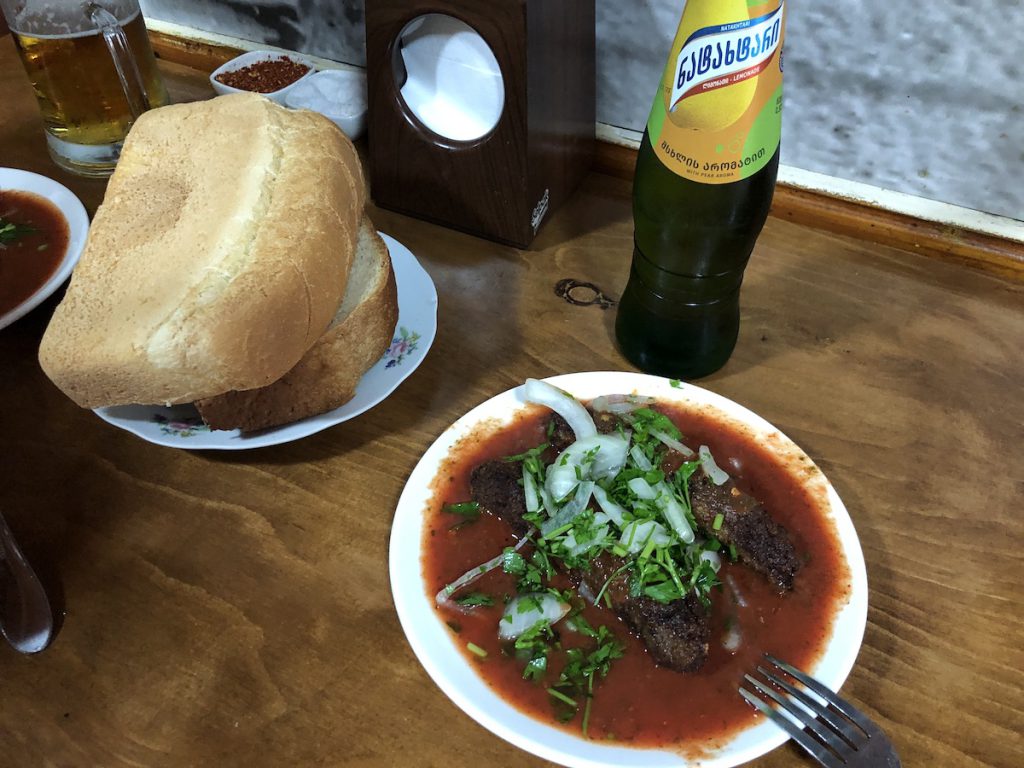
My plate emptied itself so quickly that I briefly contemplated ordering another. But it was our last day in Georgia, and we had aimless wandering to do.
I stopped in the park to discuss metaphor with Paolo Iashvili and Titsian Tabidze, leading members of the Tsispekantselebi (“Blue Horn”) group of Symbolist poets, but they didn’t have much to say.
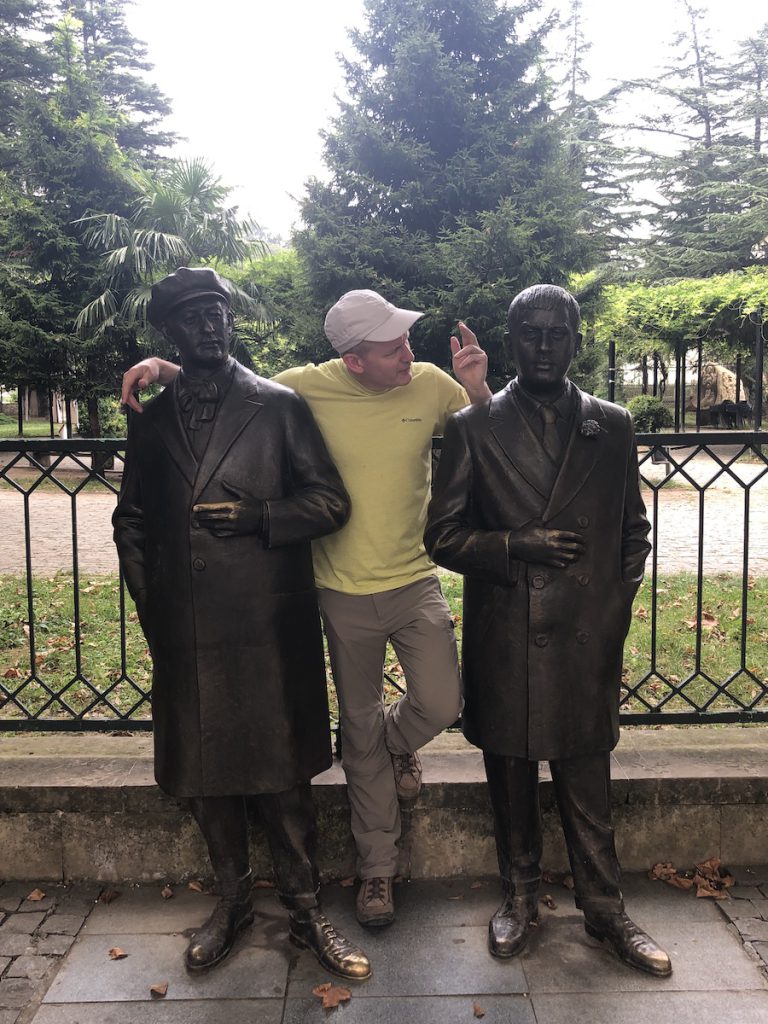
Founded in 1915 in Kutaisi as a reaction against Realism in Georgian literature, its members fell victim to Soviet suppression in the 1930s like so many other original thinkers. Tabidze was executed during Stalin’s Great Purge in 1937, and Iashvili shot himself rather than denounce his lifelong friend. But I didn’t find this out until much later, while researching the men online.
Kutaisi was founded sometime between the 6th and 5th centuries BC. As the capital of Bronze Age Colchis, this city rich in gold, timber and honey was believed to be the destination of Jason and his Argonauts as they sought King Aeëtes’s golden fleece.
We walked to the Central Market for a look at the goods the region has to offer. The covered building held a vast sprawl of stalls selling vegetables and fruit, meat, cheese, and tools and handmade wooden implements, but there wasn’t a fleece to be found (golden or otherwise), and most of the vendors seemed irritated or indifferent in the heat.
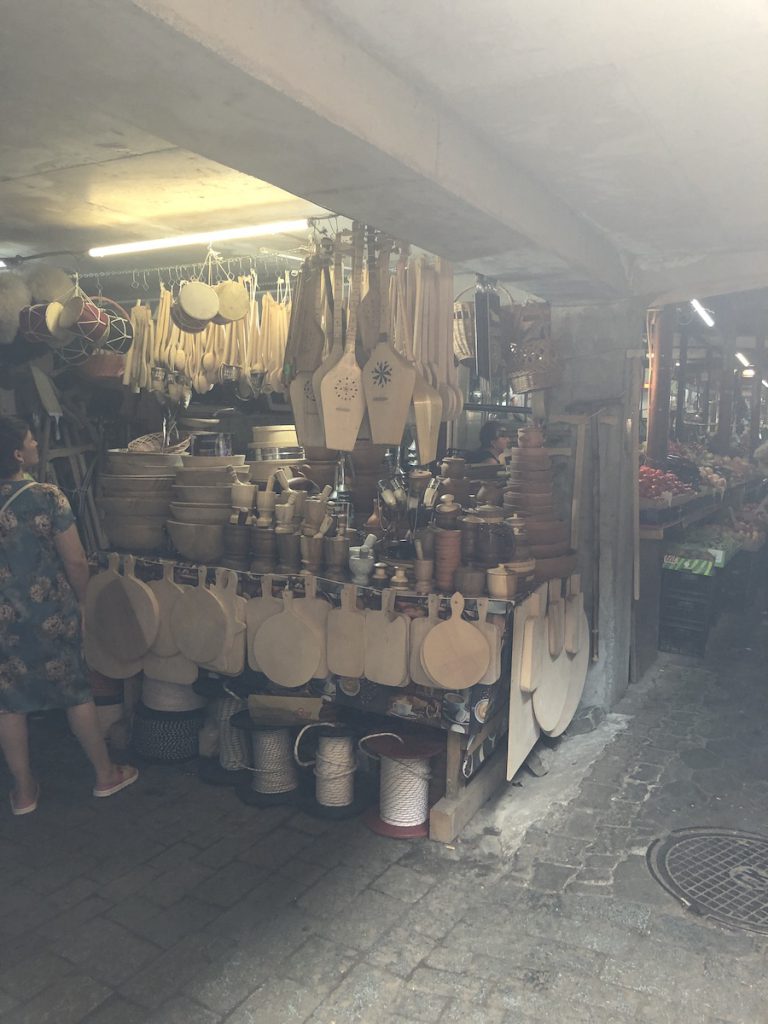
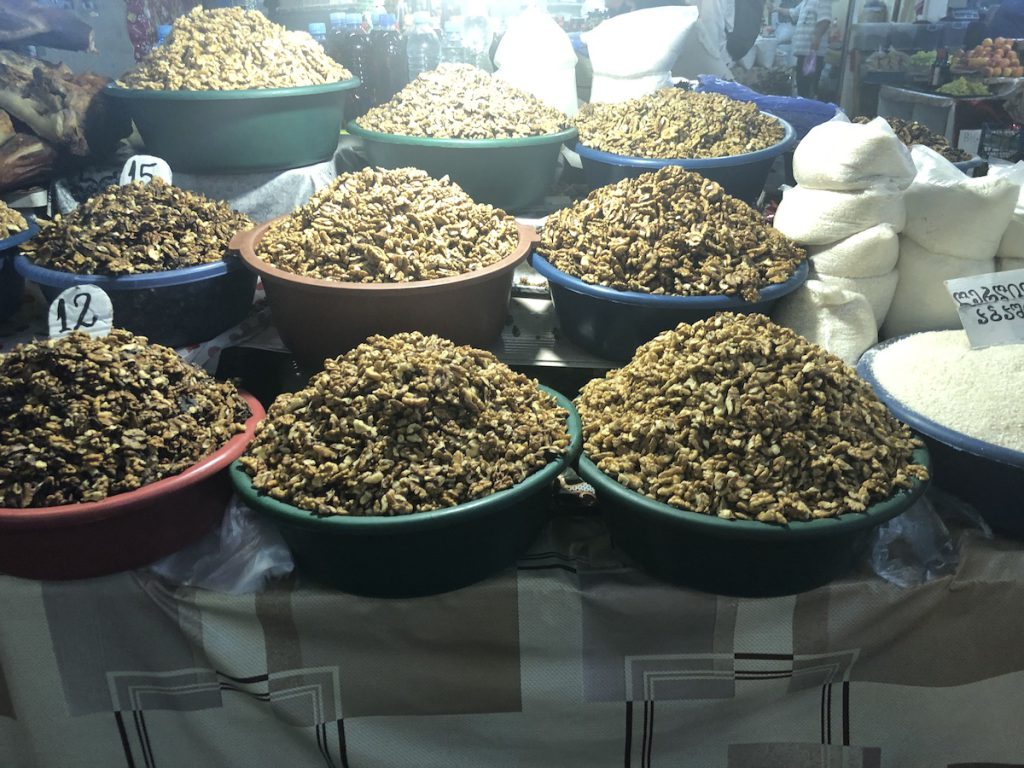
It seemed wise to abandon commerce, to ditch the secular in favour of the spiritual.
My wife twiddled something on her phone, jabbing and it and muttering incantations, and a chariot appeared in the form of a Bolt taxi that whisked us to Gelati Monastery up in the hills.
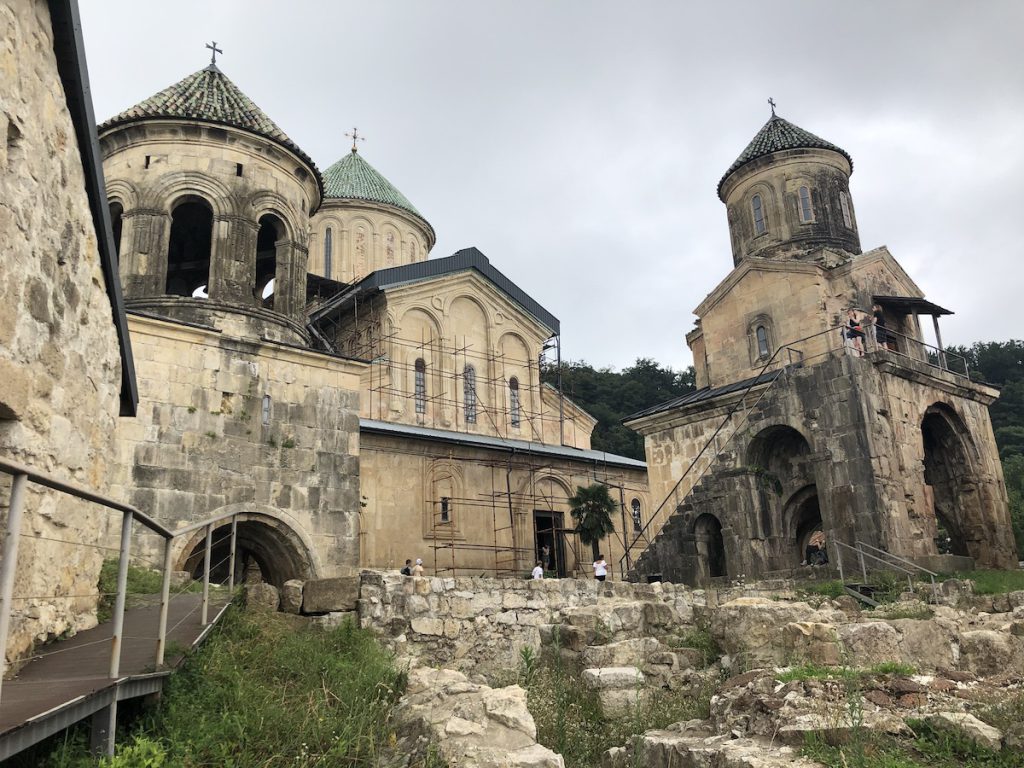
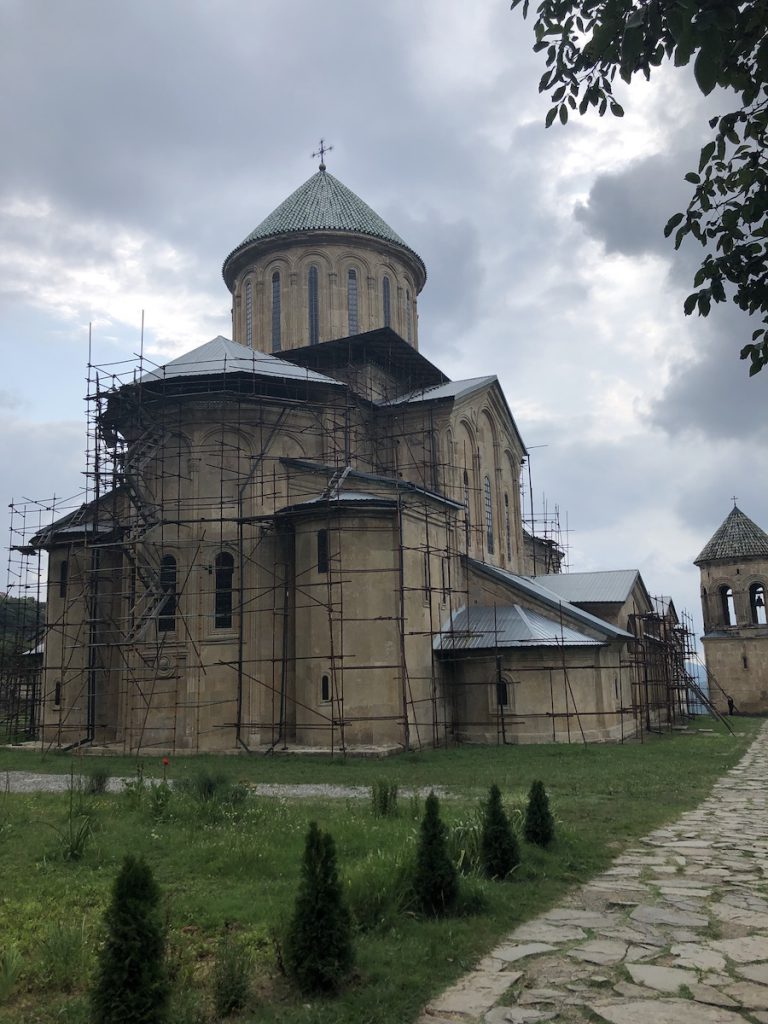
This UNESCO-listed complex was founded by King David IV in 1106 as both a religious centre and an academy of science and education. Theologians and philosophers came from abroad, and scribes copied manuscripts of important works.
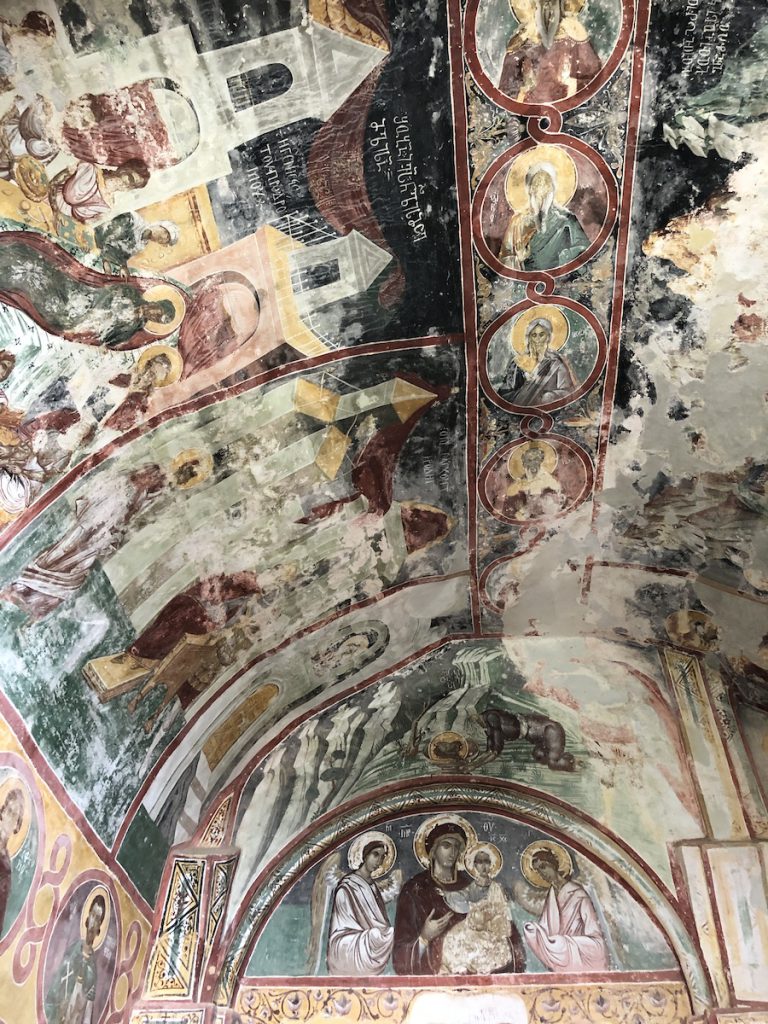
The churches contain murals dating back to the 12th century, but a massive restoration project was under way, and much was hidden by scaffolding. I trudged around and squinted into the gloom, and then gave up and wandered the hillside, thinking about how we’d get back.
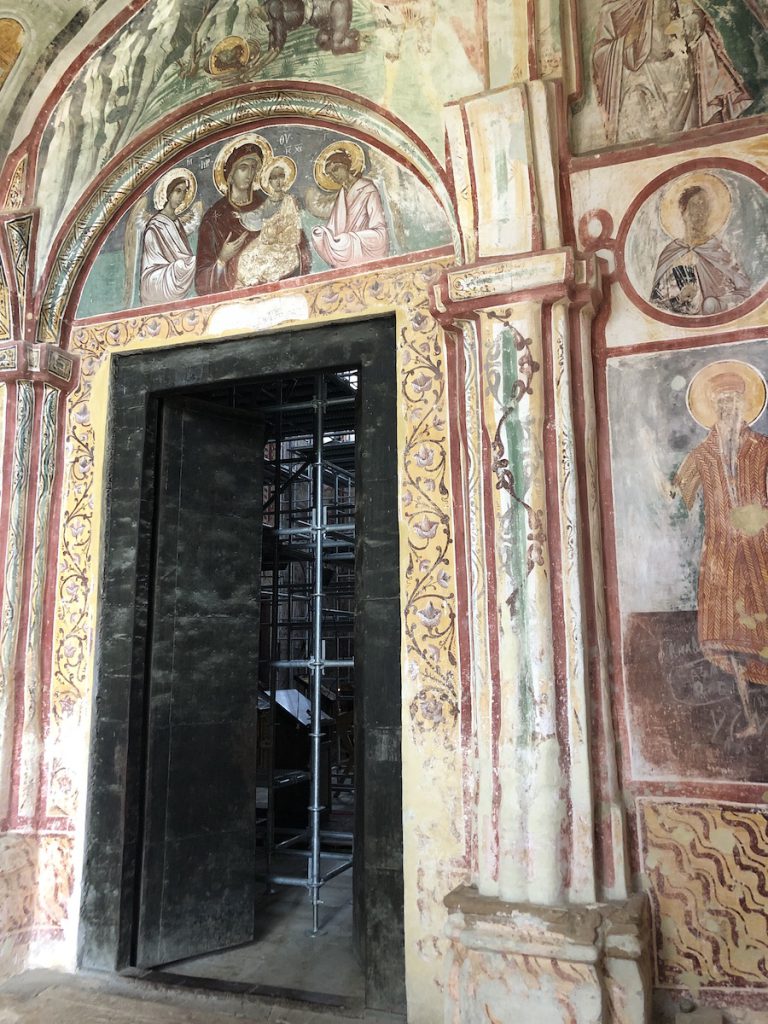
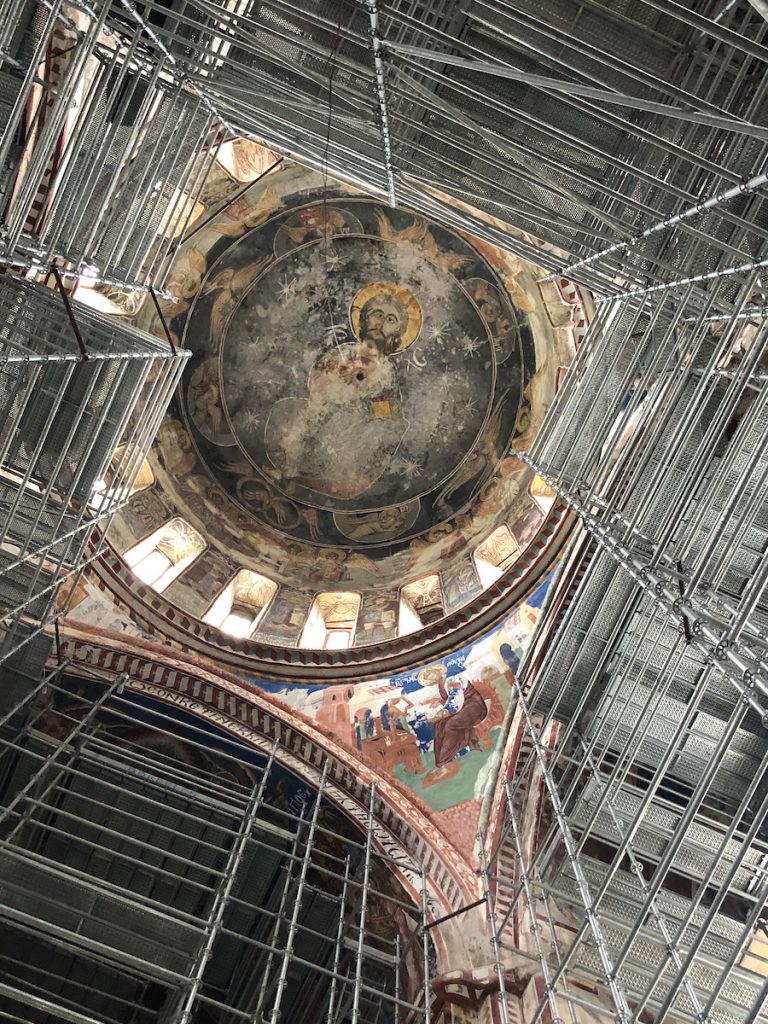
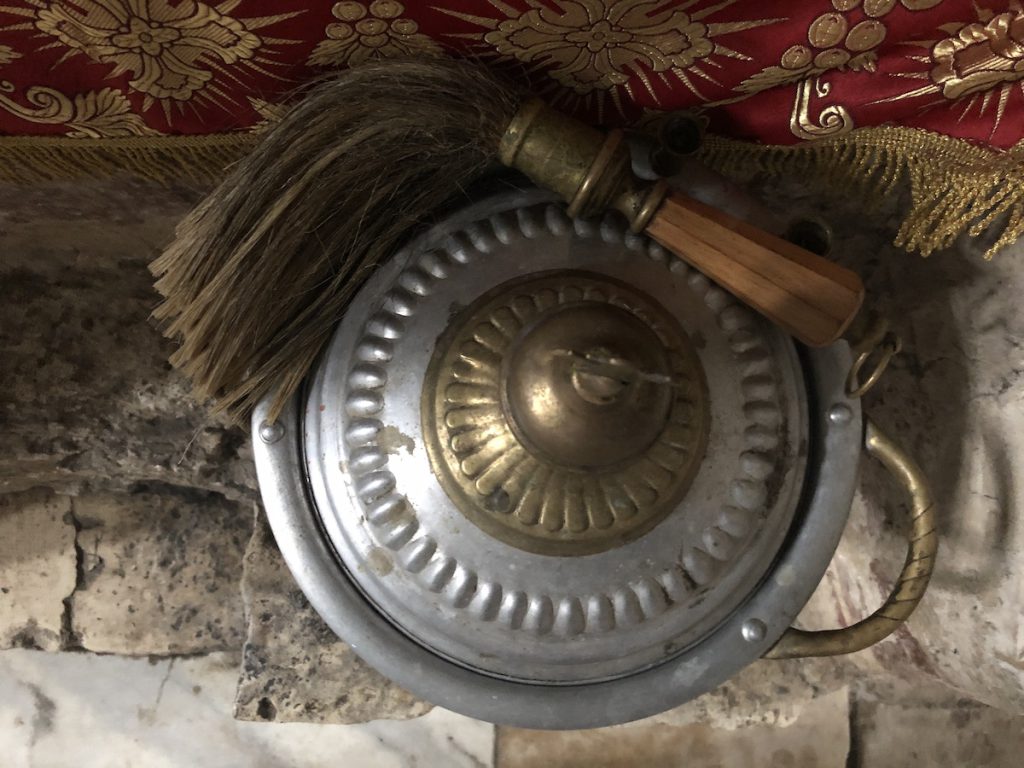
Gelati was out of range of the few Bolt taxis cruising Kutaisi, and so we walked to the end of the parking area and I stuck out my thumb. A low-slung car with two mean-looking guys passed by and then stopped in the distance. I saw them hesitate for a moment, and then white reverse lights came on and they backed up.
“Kutaisi?”
“Kutaisi.”
“Get in.”
As we swerved down the hillside road, I glanced at my wife, who’d been skeptical of the powers of my thumb. She didn’t seem to appreciate the fact that I’d spent my formative years hitching the 401 between Prescott and Brockville with Rob Wilson, gradually honing my technique.
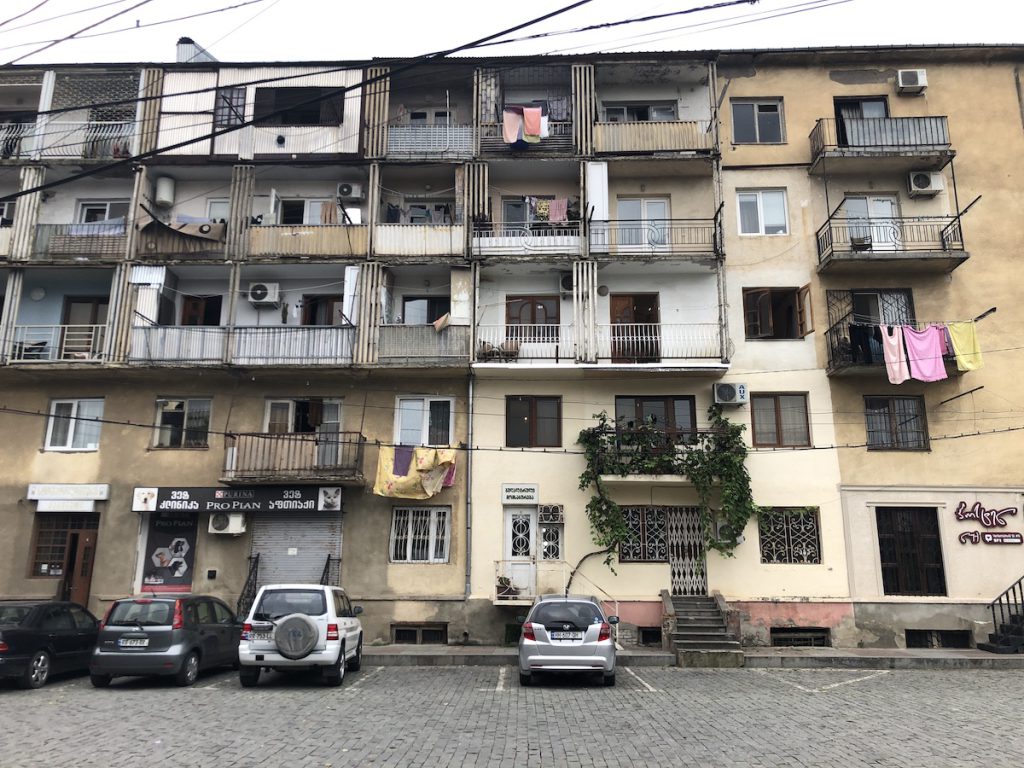
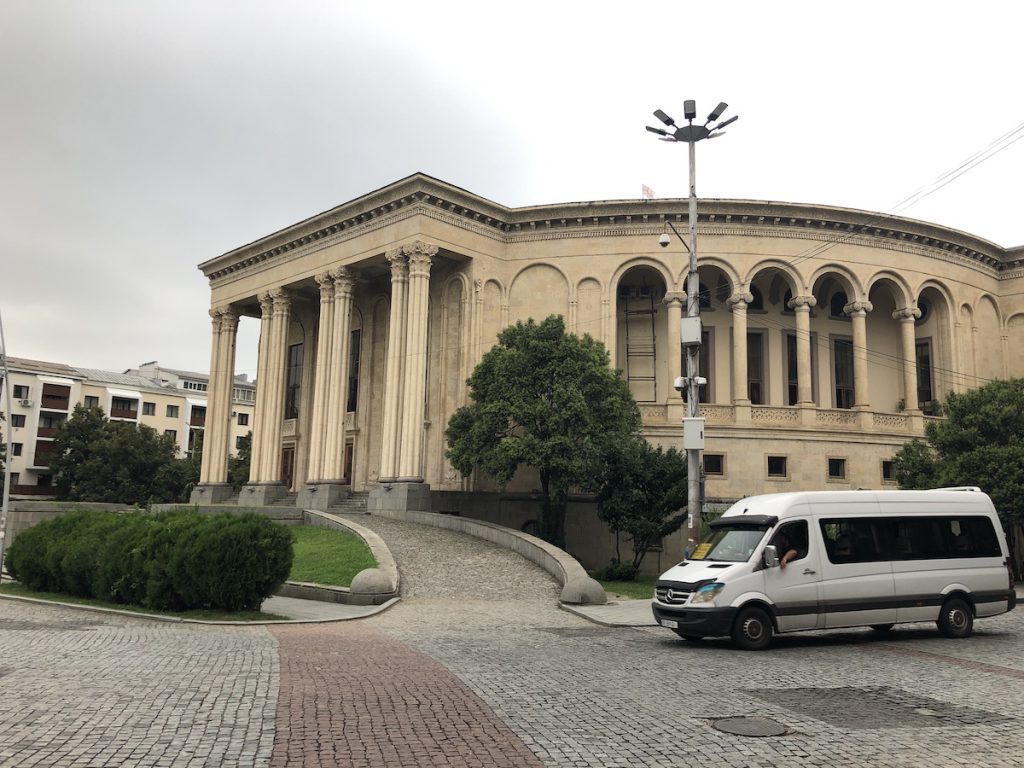
The air had thickened in the city while we were exploring rarefied heights. We walked the old French and Jewish Quarters looking at crumbling buildings and quiet streets until imminent rain sent us into a nearby restaurant.
The food was good, but a meal there cost more than all our other meals on the trip, and it didn’t hold a candle to those basement diners in Tbilisi, let alone Meri’s Guesthouse in Mestia.
I thought about those meals on the 6:40am flight to Berlin as we cruised above a cloud-covered Black Sea.
But mostly I thought about hiking, and planning another trip to the Caucasus.
Photos © Tomoko Goto 2023
